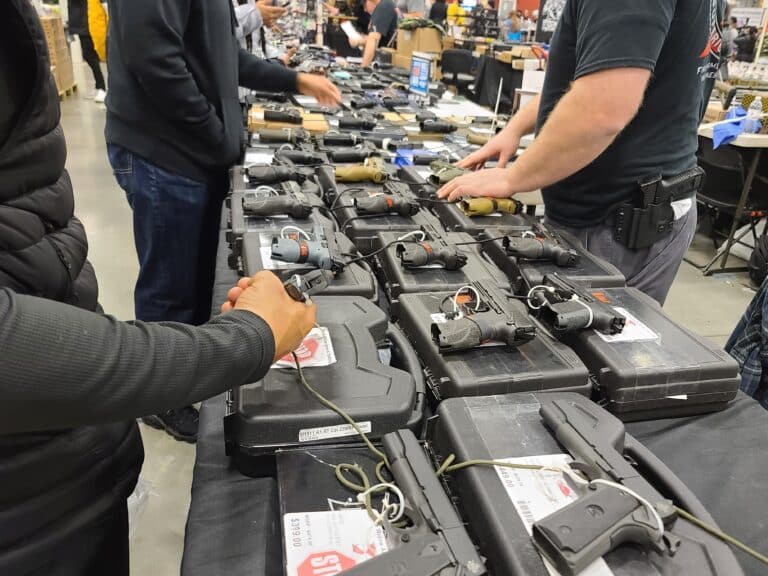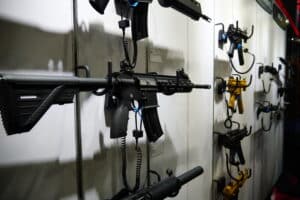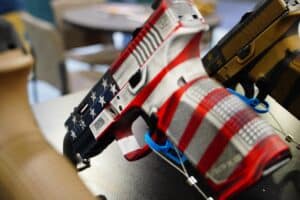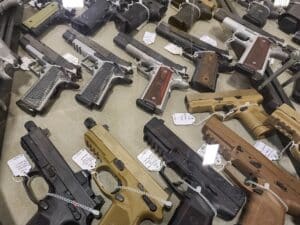Americans have been less motivated to visit their local gun shops through the first three months of the year, according to a new industry report.
The number of gun-sales-related background checks fell again in March. Checks fell by about 3.8 percent last month compared to the previous month, according to a National Shooting Sports Foundation (NSSF) analysis of FBI data.
That makes March 2025 the worst-performing March of the last five years and even drops it below several pre-pandemic years.

March’s year-over-year decline wasn’t as bad as the one the industry saw in February, when checks declined by nine percent. Still, last month capped off a lousy beginning to 2024 for the gun industry. Sales-related checks for the entire first quarter were down. They, too, were the worst in the past five years and fell below several pre-pandemic years.
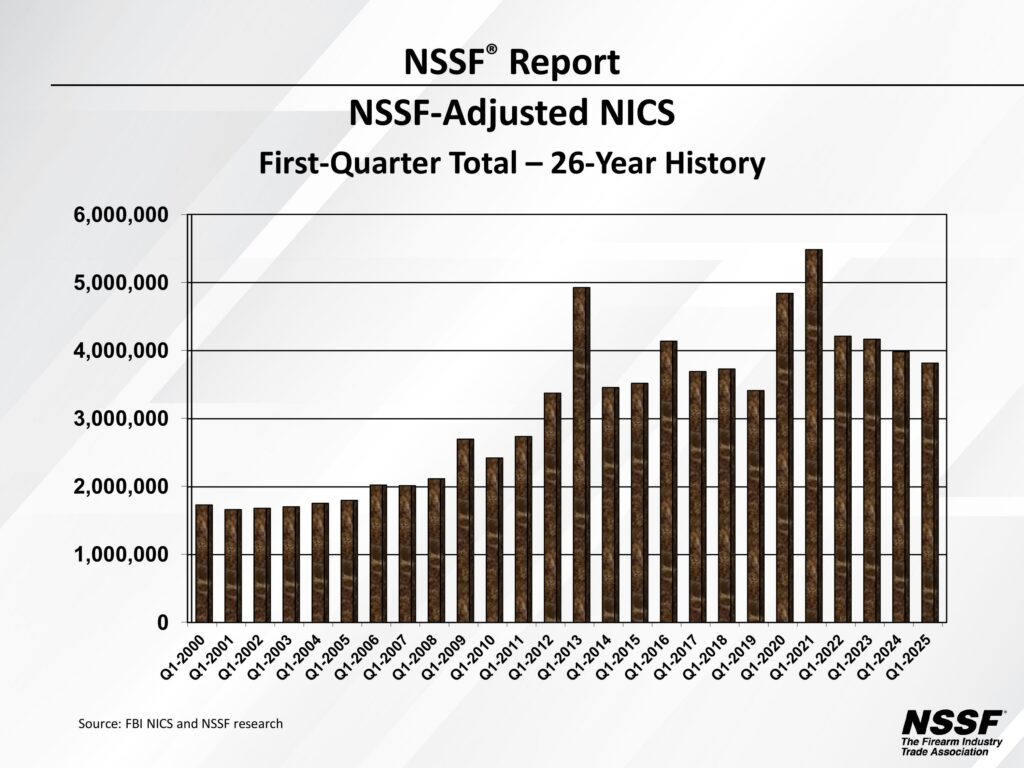
The handful of publicly traded gun companies have taken hits to their stock price over the past month, with Smith and Wesson fairing the worst.
March’s numbers indicate the slide, while potentially slowing, may not be coming to an end soon. The general economy has taken a hit from tariffs–which could also hurt the gun industry–and that could lead consumers toward more belt-tightening. Plus, President Donald Trump’s election is likely to reduce at least his supporters’ sense of urgency to buy guns out of concern over potential future bans, much as it did during the bulk of his first term.
Still, NSSF said demand remained relatively high compared to some previous years.
“Over 1.3 million times, Americans freely approached the gun counter to lawfully exercise their Second Amendment freedoms,” Mark Oliva, a spokesman for the trade group, said in a statement. “Economic challenges notwithstanding, this is indicative of the desire of Americans to safely and responsibly keep and bear arms. Americans continue to invest in their freedom and safety because it still remains a high priority.”
Larrry Keane, NSSF general counsel, said he’s confident the industry is better positioned to weather a downturn than at the beginning of the first Trump Administration.
“I think the expectation is it will continue to be a relatively soft market,” Keane told The Reload last month. “But, you know, if you look at where things are now compared to where they were 10 years ago, people would be very happy. So, slow and steady wins the race.”
He noted that 2020’s record-setting sales spike brought in a lot of new customers, which should help sustain gun companies.
“The consumer base has certainly increased significantly, particularly since 2020,” he said. “We have millions of new gun owners, and they have varying ideological views from across the spectrum.”
There is no one-to-one guide for how many guns are sold in the United States over a given period since there is no national gun registry. However, the number of checks run through the FBI’s National Instant Criminal Background Check System (NICS) is one of the most reliable gauges of gun sales. That’s because federal law requires a licensed dealer to conduct a NICS check on customers who buy guns from them, regardless of whether the sale is facilitated online, at a gun show, or in a physical gun store.
However, federal law only requires people in the business of dealing guns to obtain a license. Most states don’t require non-licensed individuals to conduct a NICS check before selling a used firearm. Many states also allow those with qualifying permits, like a concealed carry permit, to bypass the NICS check when buying guns since a NICS check is required to obtain the permit in the first place. So, the system doesn’t cover all firearms sales.
Additionally, the FBI uses NICS checks for other purposes beyond gun sales–such as the aforementioned concealed carry permits. Some states will even run all of their concealed carry permit holders through the NICS system every month, which greatly inflates the number of NICS checks beyond those associated with gun sales. NSSF uses the FBI’s data to remove the non-sales NICS checks from the count for a more accurate view of how many actually relate to gun sales.

